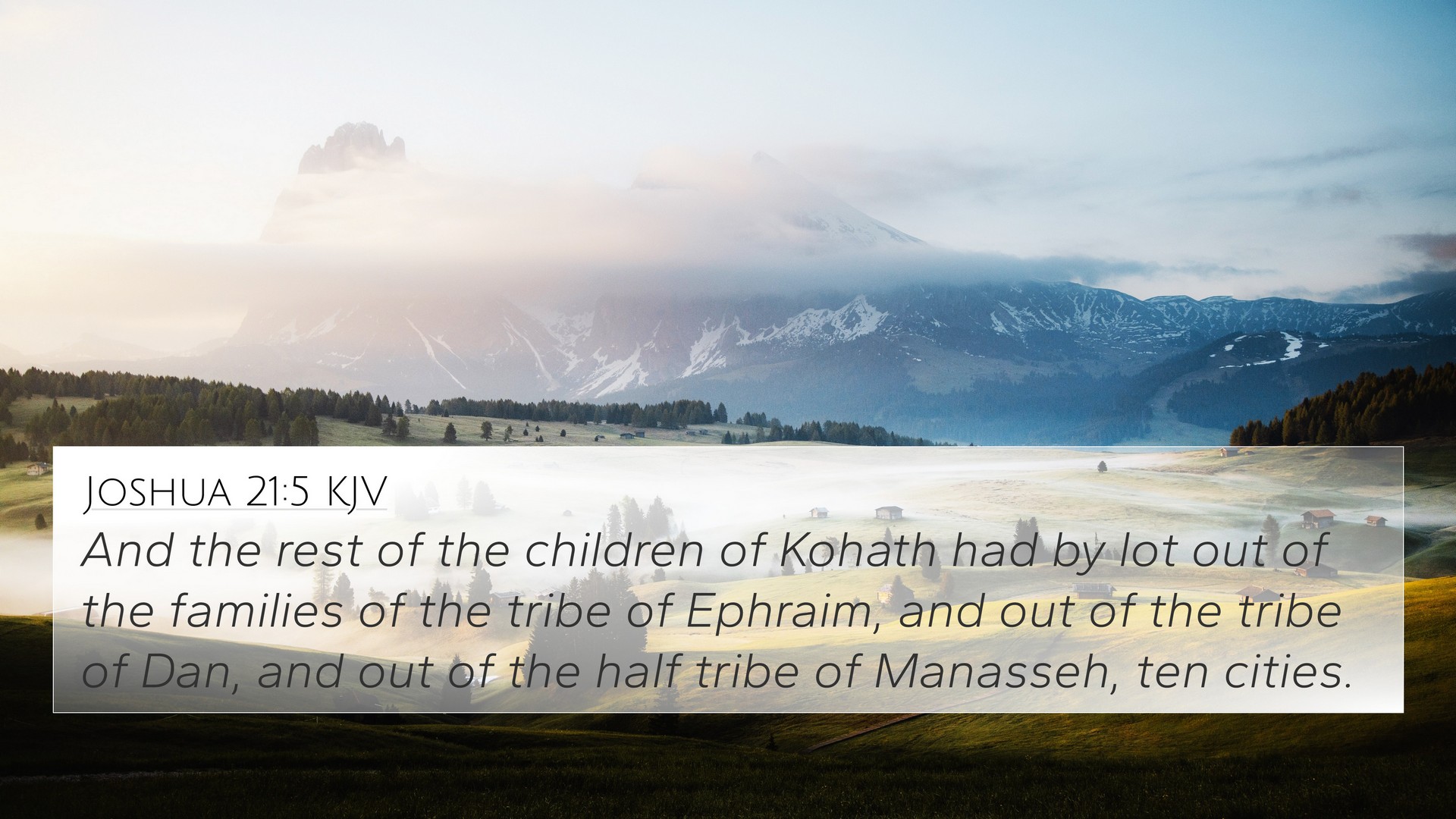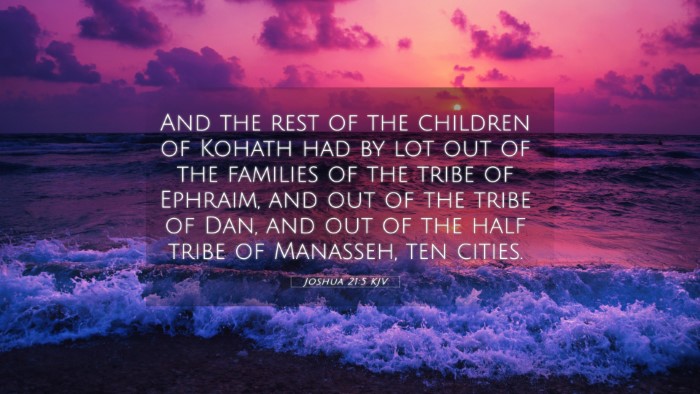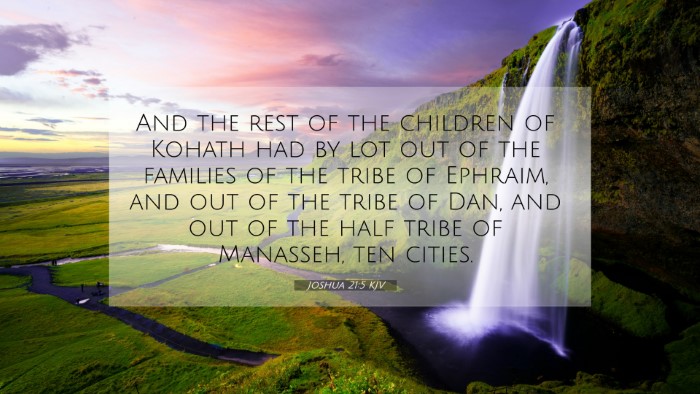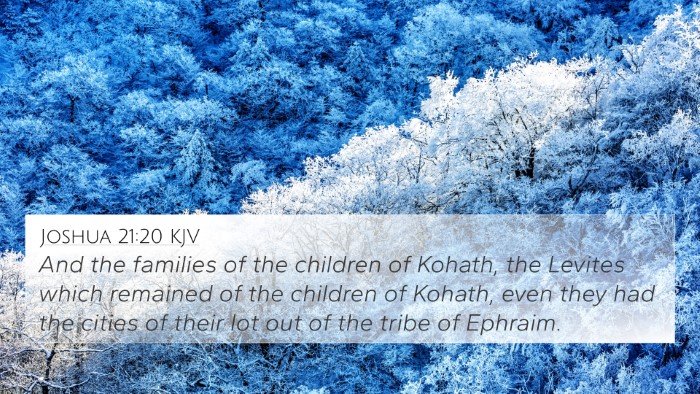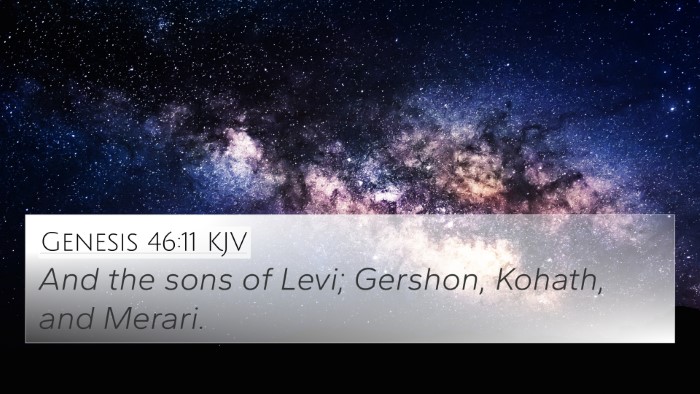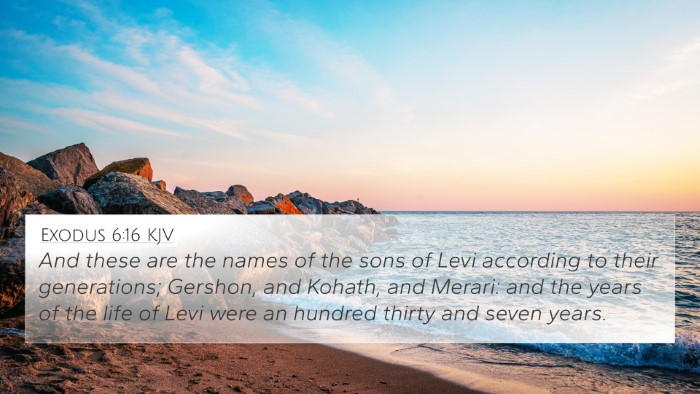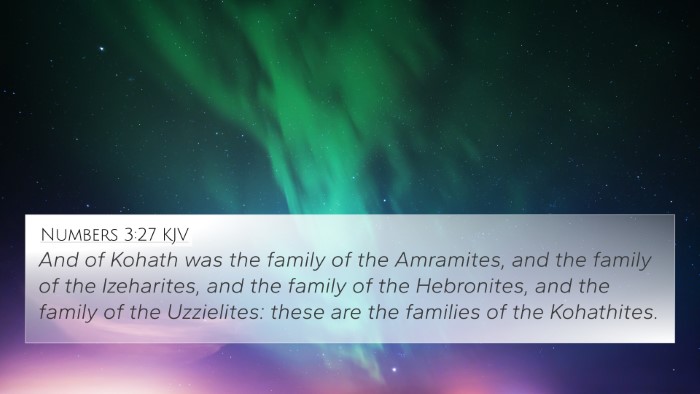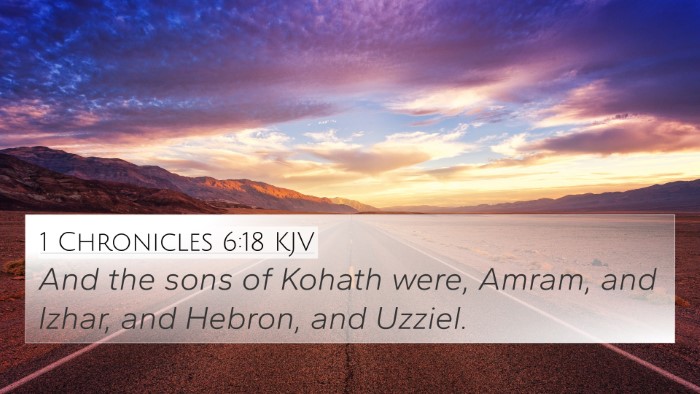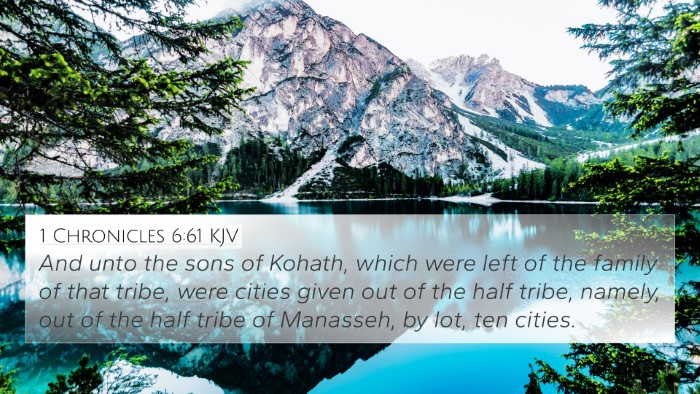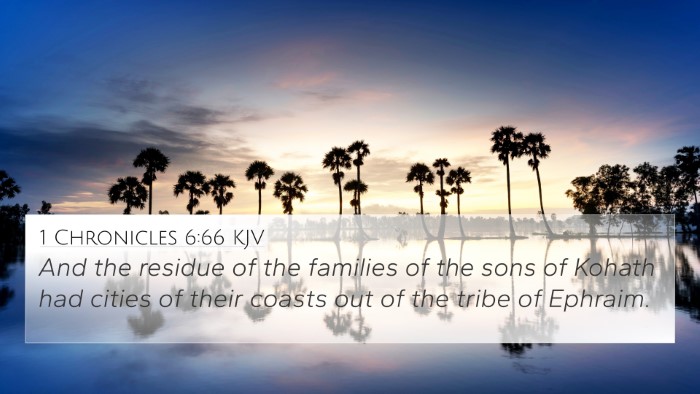Understanding Joshua 21:5
Verse: Joshua 21:5 states, "And the rest of the children of Kohath had cities of their coasts out of the tribe of Ephraim." This verse provides a brief but significant insight into the allocation of cities to the Levites, specifically the descendants of Kohath.
Summary of Meaning
This verse highlights the distribution of cities among the Levites, a tribe set apart for religious duties. The children of Kohath received cities from the Ephraim tribe, emphasizing their unique role and the importance of their service within the Israelite community.
Commentary Insights
-
Matthew Henry:
Henry elaborates that the Levites were given cities to dwell in so they could perform their priestly duties effectively. The arrangement of cities served both a functional and spiritual purpose, sustaining the religious community.
-
Albert Barnes:
Barnes emphasizes that the cities allotted were significant for Kohath because it allowed for the preservation and teaching of the Law. The connection between Kohath's cities and the tribes reflects the broader structure of Israel's society and its divine mandate.
-
Adam Clarke:
Clarke points out the strategic placement of these cities, suggesting that their locations were beneficial for accessibility to the congregants who needed spiritual guidance, thus fulfilling the Levites' roles as spiritual leaders.
Connections with Other Bible Verses
This verse can be cross-referenced with several other Biblical texts that illuminate its context and significance:
- Numbers 35:2: "Command the children of Israel that they give unto the Levites of the inheritance of their possession cities to dwell in, and ye shall give also unto the Levites suburbs for the cities round about them."
- Deuteronomy 10:9: "Wherefore Levi hath no part nor inheritance with his brethren; the Lord is his inheritance, according as the Lord thy God promised him."
- 1 Chronicles 6:54-62: "Now these are their dwelling places throughout their castles in their coasts, of the children of Aaron, of the families of the Kohathites."
- Leviticus 25:32: "Notwithstanding the cities of the Levites, the houses of the cities of their possession may be redeemed at any time."
- Joshua 14:4: "For the children of Joseph were two tribes, Manasseh and Ephraim; therefore, they gave no part unto the Levites in the land, save cities to dwell in."
- Hebrews 7:14: "For it is evident that our Lord sprang out of Judah; of which tribe Moses spake nothing concerning priesthood."
- Joshua 21:3: "And the children of Israel gave unto the Levites out of their inheritance, at the commandment of the Lord, these cities and their suburbs."
Thematic Connections
The allocation of cities to the Levites mirrors several themes throughout the Bible, including:
- Divine Provision: This verse emphasizes how God provided for the needs of His servants.
- The Role of the Levites: Highlighting their spiritual function reinforces their importance in teaching and maintaining the Law.
- Community and Belonging: The cities served to integrate the Levites into the broader Israelite society.
Cross-Referencing Insights
Understanding how to use tools for Bible cross-referencing enriches our study of Biblical texts. Here are some insights:
- How to find cross-references in the Bible: Utilize a Bible concordance to identify similar themes and topics.
- Bible cross-reference guide: Consider thematic studies that connect Old and New Testament insights.
- Identifying connections between the Old and New Testament: Explore how the roles of the Levites, seen here, relate to New Testament teachings of servanthood and community.
Reflecting on Joshua 21:5
In conclusion, Joshua 21:5 offers profound insights into the structure of Israelite society and God's providence over His people. By using cross-referencing and thematic connections, we can deepen our understanding of this verse and its implications for both historical and contemporary spiritual contexts. Such textual relationships enhance our ability to grasp the continuity and cohesiveness of scripture, promoting meaningful application in our lives.
